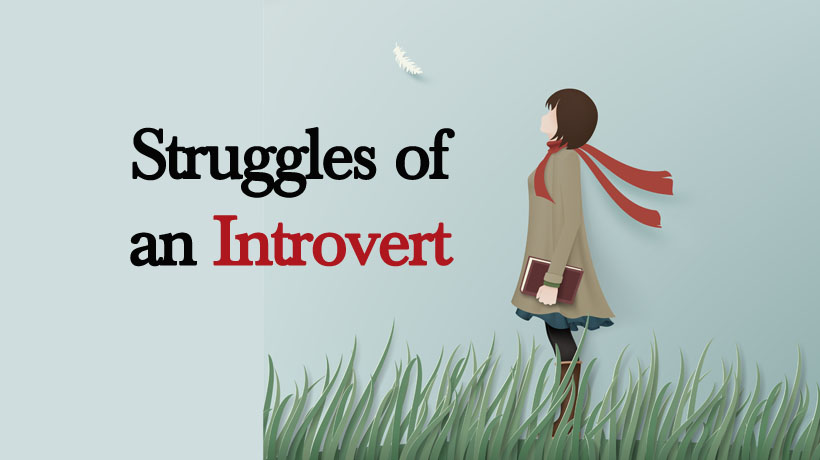You may have heard that people are generally more extroverted or introverted. What does this really mean? If you are more of an extrovert, then you become more energized by being socially active. If you tend toward introversion, your energy is fed from within. Too much external stimuli can deplete your energy. You may often purposely leave space in your schedule to recharge after social occasions.
In most work environments, extroverts represent most of the population and tend to misunderstand introverts since they are wired differently. Thanks to speakers like Susan Cain and her introvert empowerment campaign Quiet Revolution, many people in our culture are realizing their bias toward extroverts and appreciating the gifts that introverts can bring. To help with this, here are some struggles and strengths that most introverts will find represent their world.
Struggle: Can seem aloof and difficult to get to know.
Introverts don’t mean to be this way. They can be just as gregarious as extroverts—they just need more time to warm up before they’re ready to put themselves out there. For instance, when starting a new job, it can feel very challenging to break into an existing group because they want others to like them so much that they stay quiet rather than risk saying the wrong thing.
Strength: Have keen observational skills.
Introverts will never speak without thinking. They talk with intention, so their words tend to carry more weight. Most introverts have a reputation for their wisdom and poise because they take the time to word their thoughts carefully. Also, introverts can be incredibly charismatic public speakers given ample opportunity to gather their ideas first.
Struggle: Hate being put on the spot, like being asked to come up with brilliant ideas on a moment’s notice.
When surrounded by people, all waiting for an introvert to come up with an answer out of thin air, their brains fill up with white noise. If the leader would just send out a prompt ahead of time and ask everyone to bring their ideas to the meeting, introverts can blow your minds with their well-thought-out suggestions.
Strength: Self-motivated and focused on what they enjoy.
Most introverts love the feeling of being completely immersed in enjoyable work. They also need downtime to relax and chat with coworkers but don’t require as much external stimulation as others do. They’re happiest when able to work autonomously at their own pace, without constant interruptions or unnecessary supervision, and makes them easy to manage.
Struggle: Can be quiet, and sometimes drowned out by louder and more persistent voices. Sometimes, when introverts are quiet in meetings, it’s because they think through their responses so carefully that they decide they’re not worth stating out loud. Other times, they know that they have the best idea in the room, but they would rather not have to vie for attention to speak their minds.
Strength: Team-oriented.
Introverts can be some of the best coworkers you could ever ask for. Rather than competing for the spotlight or making their voices heard, they tend toward being supportive and collaborative. They also need to feel appreciated and enjoy having their efforts recognized, but it’s a bonus, not their primary goal.
Struggle: Sensitive to feedback.
Even if introverts know constructive feedback is for their own benefit, they may still need a little time to process and accept what they’ve heard. It’s almost impossible for them not to take criticism personally.
Strength: Thoughtful, insightful and empathetic.
Introverts listen more than they speak and take in data about other people—information that gets drowned out when you’re constantly figuring out what to say next. Introverts pick up the subtle hints that others give out about who they are and what they care about. This means they actually pay attention to the details that most people miss. People begin to associate introverts with the feeling of being listened to and cared about.
Struggle: Anxious, especially about privacy and communicating.
Introverts can find situations challenging that others might find comfortable. They don’t wish to feel so exposed that they are unable to focus, such as open office layouts. They dread making small talk, whether in the elevator or at networking events, feeling both awkward and forced. But they love connecting with people through more in-depth conversations about things both people care about. In these moments, they can often be mistaken for extroverts!
Strength: Creative and leaders of a different kind.
Introverts are hugely successful leaders when given a chance. They won’t seize power but will start quietly leading those around them through mentorship, wisdom, and inspiration. They value others’ perspectives and respect their autonomy. They also keep their egos in check, and they don’t take risks without thinking them through. The world needs introverted leaders now more than ever!



